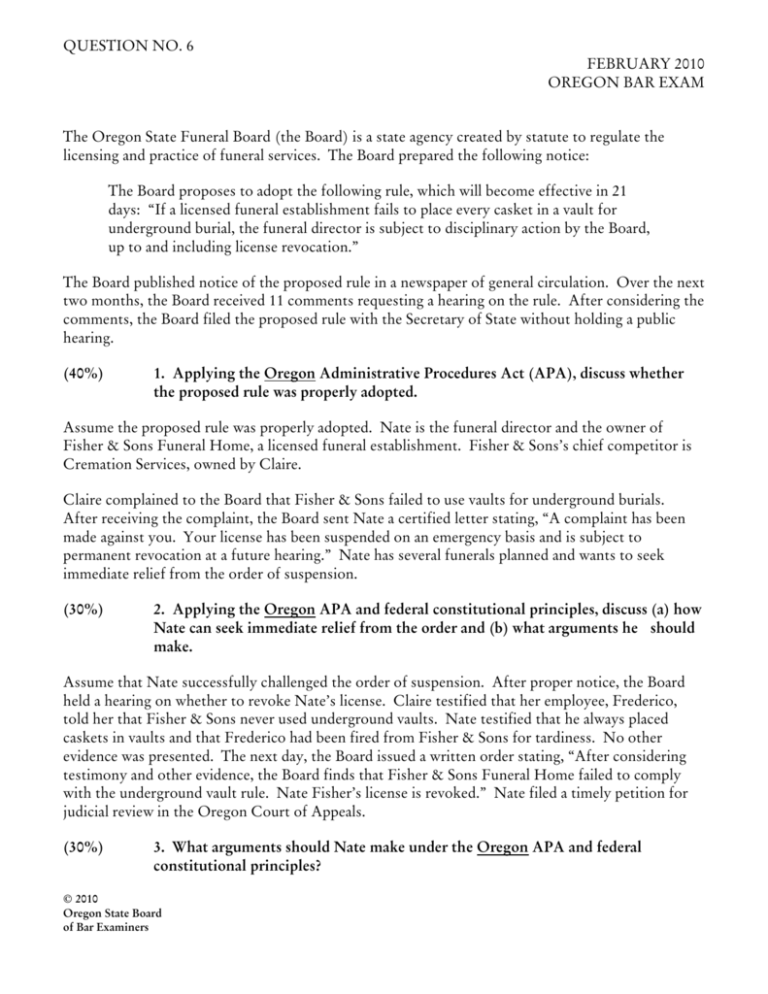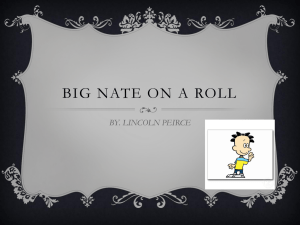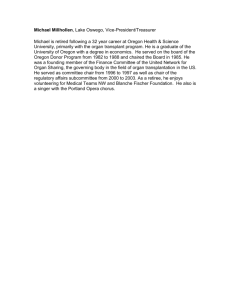Administrative Law - February 2010
advertisement

QUESTION NO. 6 FEBRUARY 2010 OREGON BAR EXAM The Oregon State Funeral Board (the Board) is a state agency created by statute to regulate the licensing and practice of funeral services. The Board prepared the following notice: The Board proposes to adopt the following rule, which will become effective in 21 days: “If a licensed funeral establishment fails to place every casket in a vault for underground burial, the funeral director is subject to disciplinary action by the Board, up to and including license revocation.” The Board published notice of the proposed rule in a newspaper of general circulation. Over the next two months, the Board received 11 comments requesting a hearing on the rule. After considering the comments, the Board filed the proposed rule with the Secretary of State without holding a public hearing. (40%) 1. Applying the Oregon Administrative Procedures Act (APA), discuss whether the proposed rule was properly adopted. Assume the proposed rule was properly adopted. Nate is the funeral director and the owner of Fisher & Sons Funeral Home, a licensed funeral establishment. Fisher & Sons’s chief competitor is Cremation Services, owned by Claire. Claire complained to the Board that Fisher & Sons failed to use vaults for underground burials. After receiving the complaint, the Board sent Nate a certified letter stating, “A complaint has been made against you. Your license has been suspended on an emergency basis and is subject to permanent revocation at a future hearing.” Nate has several funerals planned and wants to seek immediate relief from the order of suspension. (30%) 2. Applying the Oregon APA and federal constitutional principles, discuss (a) how Nate can seek immediate relief from the order and (b) what arguments he should make. Assume that Nate successfully challenged the order of suspension. After proper notice, the Board held a hearing on whether to revoke Nate’s license. Claire testified that her employee, Frederico, told her that Fisher & Sons never used underground vaults. Nate testified that he always placed caskets in vaults and that Frederico had been fired from Fisher & Sons for tardiness. No other evidence was presented. The next day, the Board issued a written order stating, “After considering testimony and other evidence, the Board finds that Fisher & Sons Funeral Home failed to comply with the underground vault rule. Nate Fisher’s license is revoked.” Nate filed a timely petition for judicial review in the Oregon Court of Appeals. (30%) 3. What arguments should Nate make under the Oregon APA and federal constitutional principles? © 2010 Oregon State Board of Bar Examiners QUESTION NO. 6 FEBRUARY 2010 OREGON BAR EXAM ISSUE OUTLINE – ADMINISTRATIVE LAW 1. Applying the Oregon APA, discuss whether the proposed rule was properly adopted. A. Agency failed to provide adequate notice of the proposed rule or an adequate comment period. a. The agency must provide notice of a proposed rule by: (a) publishing it in the Secretary of State's Bulletin at least 21 days before the effective date; (b) providing at least 28 days' notice to persons who have requested notice in writing; and (c) providing at least 49 days' notice to certain legislators. i. Publication in a newspaper is not adequate ii. 21 days is insufficient comment period b. Notice must contain: (a) the subject matter and purpose of the intended action in sufficient detail to inform a person that the person's interests may be effected; (b) the time, place and manner in which interested persons can comment; (c) the statutory authority for the rule; (d) a statement of need for the rule and how the rule meets the need; (e) a list of documents relied upon by the agency in preparing the rule; (f) a fiscal impact statement identifying who may be economically effected by the rule; (g) a request for public comment on other options for achieving the rule's substantive goals; and (h) if an advisory committee was not appointed, an explanation as to why the agency did not use an advisory committee when drafting the rule. i. Notice lacks the required content. B. Agency failed to hold a hearing. a. Although not always required, agency must hold a hearing if requested to do so by 10 or more persons. b. 11 requested a hearing but the agency failed to hold one. C. Agency failed to properly adopt the rule. 2. Applying Oregon and federal law, discuss (a) how Nate can seek immediate relief from the order and (b) what arguments he should he raise. A. Nate can seek interim relief in the form of a stay from the agency or from the Court of Appeals if the agency denies the stay. ORS 183.482. B. The agency or Court should grant the stay if there is a possibility of irreparable harm and colorable claim of error in the order unless substantial public harm will result. ORS 183.482. a. Professional licenses are property protected by the due process clause. b. Due process requires notice and a hearing before the government can suspend a license, and the order must include findings of specific grounds for the suspension. c. The state can only suspend a license on an emergency basis if there is a serious danger to public health; there is no evidence to support a finding of a public health danger d. Matthews v. Eldridge balancing test: In determining the amount of process due in a deprivation of a protected interest, the court must weigh (a) the importance of the individual interest involved; (b) the value of specific procedural safeguards to that interest; and (c) the governmental interest in fiscal and administrative efficiency 3. What arguments should Nate raise under Oregon and federal law? A. Order was procedurally defective a. Final orders must be in writing and must include findings of facts and conclusions of law b. No reasons given, no statutory authority cited, etc. c. Findings must be based on evidence in the record; the order says Board considered “other evidence” B. Order lacks substantial evidence a. Court of Appeals will review record to see if there is substantial evidence to support the board’s findings b. Only evidence taken was hearsay (i.e., Frederico’s out of court statement) c. Hearsay is admissible in administrative proceedings, but due process clause limits reliance on hearsay evidence d. Whether hearsay is substantial evidence depends on: i. the alternative to relying on the hearsay evidence ii. the importance of the facts sought to be proved by the hearsay iii. the state of the supporting or opposing evidence, if any, and iv. the degree of lack of efficacy of cross-examination. e. © 2010 Oregon State Board of Bar Examiners The hearsay testimony probably violated Nate’s due process rights: i. the fact was critical ii. the fact could be proven by means other than the hearsay testimony iii. hearsay testimony was the only evidence iv. there was no opportunity to cross-examine Frederico, cross-examination might have revealed a motive to lie






